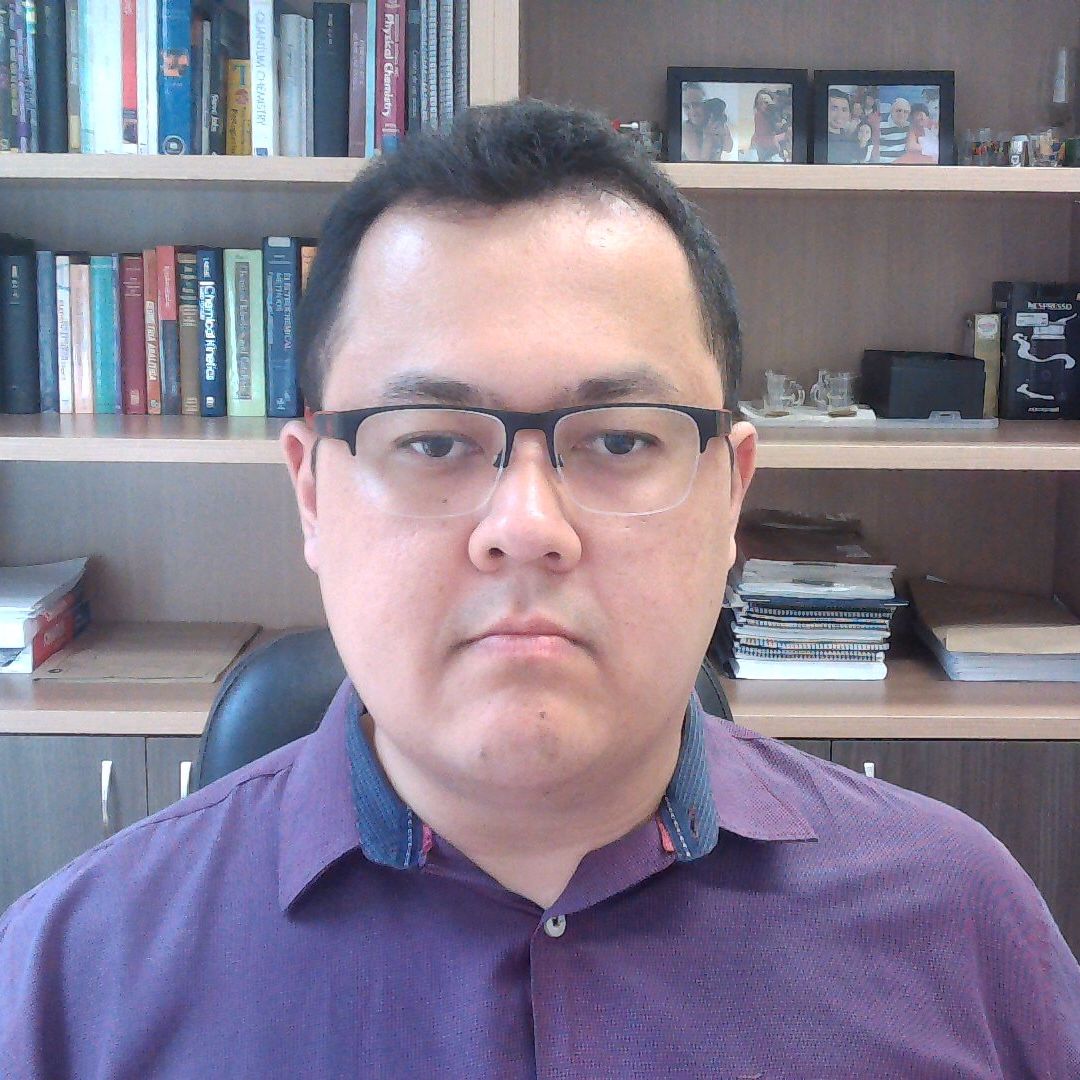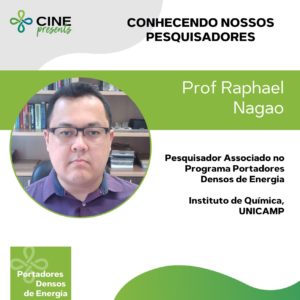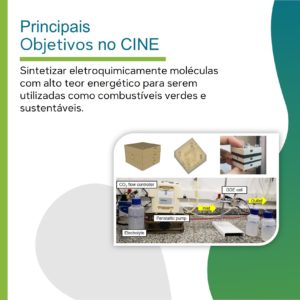
Raphael Nagao, PhD, MRSC
nagao@unicamp.br
Education
2003 – 2006: BSc University of Sao Paulo, Brazil
2007 – 2009: MSc University of Sao Paulo, Brazil
2009 – 2013: PhD University of Sao Paulo, Brazil
2011 – 2012: PhD Brandeis University, USA
Postdoc
2014 – 2016: Saint Louis University, USA
Professor
2018 – 2022: Assistant Prof. (MS3.1) at University of Campinas, Brazil
2022: Associate Prof. (MS5.1) at University of Campinas, Brazil
Short Bio: Associate Professor (MS5.1), affiliated member of the São Paulo State Academy of Sciences, CNPq Research Productivity Fellow (Level 2), and leader of the Electrochemical Energy Lab (ElectroEnergy) at the Institute of Chemistry, University of Campinas (UNICAMP). He has served as Director of the Physical Chemistry Division of the Brazilian Chemical Society (SBQ), Director of the Brazilian Section of The Electrochemical Society (ECS), Associate Coordinator of the Undergraduate Program, and Coordinator of the Safety and Environmental Ethics Committee at the Institute of Chemistry. He was also a FAPESP Young Investigator. He received his academic training (B.Sc. in Chemistry, M.Sc., and Ph.D. in Sciences with a focus in Physical Chemistry) at the São Carlos Institute of Chemistry (USP), including a scientific internship (14 months) at the Department of Chemistry and the Volen Center for Complex Systems at Brandeis University (Massachusetts, USA), and a postdoctoral fellowship (24 months) at the Department of Chemistry, Saint Louis University (Missouri, USA). He was selected to attend the 67th Lindau Nobel Laureate Meeting, the 7th BRICS Young Scientist Forum, and the Next Generation Ambassadors of Chemistry. He is a member of several scientific societies and institutions, including B-MRS, SBEE, ISE, ECS, SBQ, ACS, and RSC. His main research focus is the development of nanostructured materials for application in the sustainable electrosynthesis of green hydrogen, green fertilizers (ammonia and urea), and carbon dioxide reduction products. He also has extensive experience in the electro-oxidation of organic molecules from biomass. His work integrates analytical instrumental techniques coupled to electrochemical cells for real-time monitoring of reaction intermediates and products. Combined with synchrotron-based spectroscopy and scattering techniques (with space-time resolution) and high-resolution surface imaging available at CNPEM, his ultimate goal is to achieve a fundamental understanding of energy conversion and storage processes, leading to the development of new technologies with direct application in the energy sector. His research agenda is aligned with the Center for Innovation on New Energies (CINE), where he is a principal investigator, and with the United Nations Sustainable Development Goals (SDGs) 2, 6, 7, 12, and 13. To date, he has published 50 peer-reviewed articles (h-index = 18, >1200 citations), filed 2 patents (1 licensed), and delivered over 120 contributions to national and international conferences. In 2024, he was selected to join the JACS Au Early Career Advisory Board, and in 2025, he received the UNICAMP Inventors Award.





